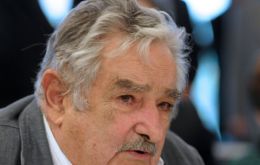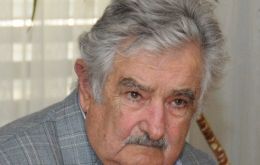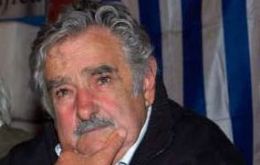MercoPress. South Atlantic News Agency
Tag: Broad Front (Uruguay)
-
Monday, June 3rd 2013 - 05:17 UTC
Uruguay ruling coalition warned about budget deficit and loss of labour productivity

Uruguayan economic officials have warned the ruling coalition Broad Front about the regional risk-situation in complex Argentina and stalled Brazil, and its influence on Uruguay which needs to lower its budget deficit and improve labour productivity and competitiveness.
-
Thursday, March 7th 2013 - 23:29 UTC
Back in 1994 when Chavez visited Uruguay, “the current ruling coalition did not take him seriously”

Uruguayan former president Jorge Batlle recalled in his Facebook column that when a still unknown Hugo Chavez visited Uruguay back in 1994, the now left-leaning ruling coalition didn’t take him seriously and the leader of the movement at the time General Liber Seregni did not receive him.
-
Wednesday, August 15th 2012 - 23:50 UTC
Uruguay discourages short-term capital inflow to ensure macroeconomic stability

Uruguay's central bank unveiled measures on Wednesday aimed at cooling the local Peso's appreciation by discouraging foreign investment in the bank's short-term debt. To combat the Peso's rise, officials ordered that 40% of new foreign capital invested in central bank bills be frozen in an account at the central bank.
-
Wednesday, August 15th 2012 - 09:32 UTC
Mujica support falls to 39%; pot and Mercosur sanctions on Paraguay weighed

Uruguayan president Jose Mujica approval plummeted to 39% in July, the lowest since taking office among other reasons for his plan to de-criminalize marihuana and his handling of the controversy with Argentina, according to the latest public opinion poll made public this week.
-
Friday, August 10th 2012 - 08:56 UTC
Uruguay begins to discuss ‘marihuana bill’ that makes government pot dealer

A plan by Uruguayan president Jose Mujica to turn the government into the nation's marijuana dealer has been presented to Congress. The aim of the proposed bill is to take over an illegal marijuana trafficking business estimated to be worth 30 to 40 million dollars annually.
-
Monday, January 30th 2012 - 09:49 UTC
Uruguay's ruling coalition has 7 points lead over the opposition

Uruguay’s ruling catch-all coalition, Broad Front, has a 44% support well ahead of any of the two main opposition parties, according to the latest public opinion poll released in Montevideo by Equipos Mori.
-
Thursday, October 27th 2011 - 23:16 UTC
Uruguay passes bill eliminating prescription of crimes against humanity

The Uruguayan Congress passed early Thursday a law that eliminates the effects of the 1986 Amnesty Law (also known as Expiry Law), which protected police and military personnel from being prosecuted for human rights violations, and repeals a statute of limitations that would have prevented victims from filing criminal complaints as of 1 November.
-
Tuesday, May 17th 2011 - 00:56 UTC
Support for Uruguay president drops to 41%, down from 75% when taking office

Support for Uruguayan president Jose Mujica dropped to 41%, nine percentage points less than last March and 34 points down from when he took office in March 2010, according to an Interconsult public opinion poll published Monday in one of Montevideo’s dailies.
-
Monday, May 16th 2011 - 06:38 UTC
Major setback for President Mujica and for the Uruguayan ruling coalition

The administration of Uruguayan president Jose Mujica suffered a major setback over the weekend and could experience a further showdown on Thursday when members of the ruling coalition vote in Parliament the annulment of an Amnesty or Crimes expiration law which impedes the investigation of human rights violations committed during the country’s military dictatorship (1973/1985).
-
Tuesday, May 3rd 2011 - 08:22 UTC
Uruguay: overturning amnesty law could cost ruling coalition ‘dearly’

Uruguayan Vice-president Danilo Astori acknowledged that overturning the “Expired Crimes” or amnesty bill for human rights violators during the military dictatorship (1973/1985) could cost the ruling coalition ‘dearly’ and said he voted following ‘party discipline’.
